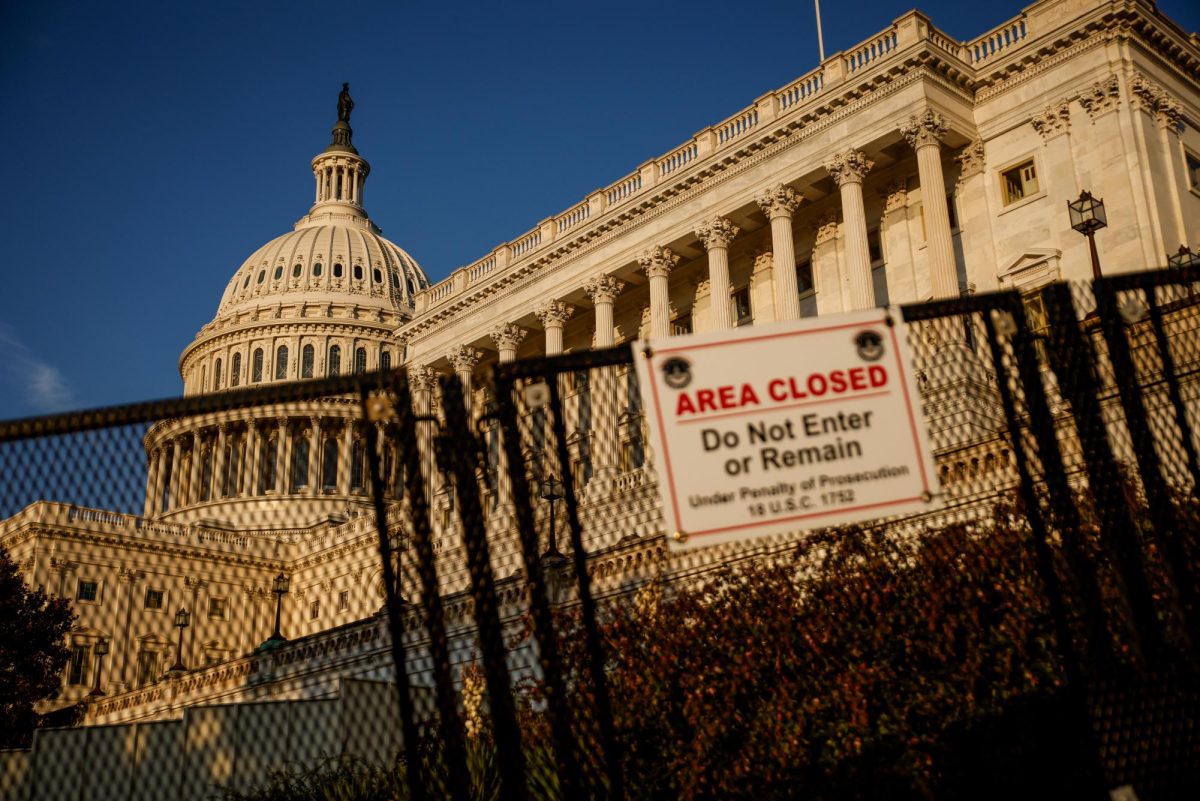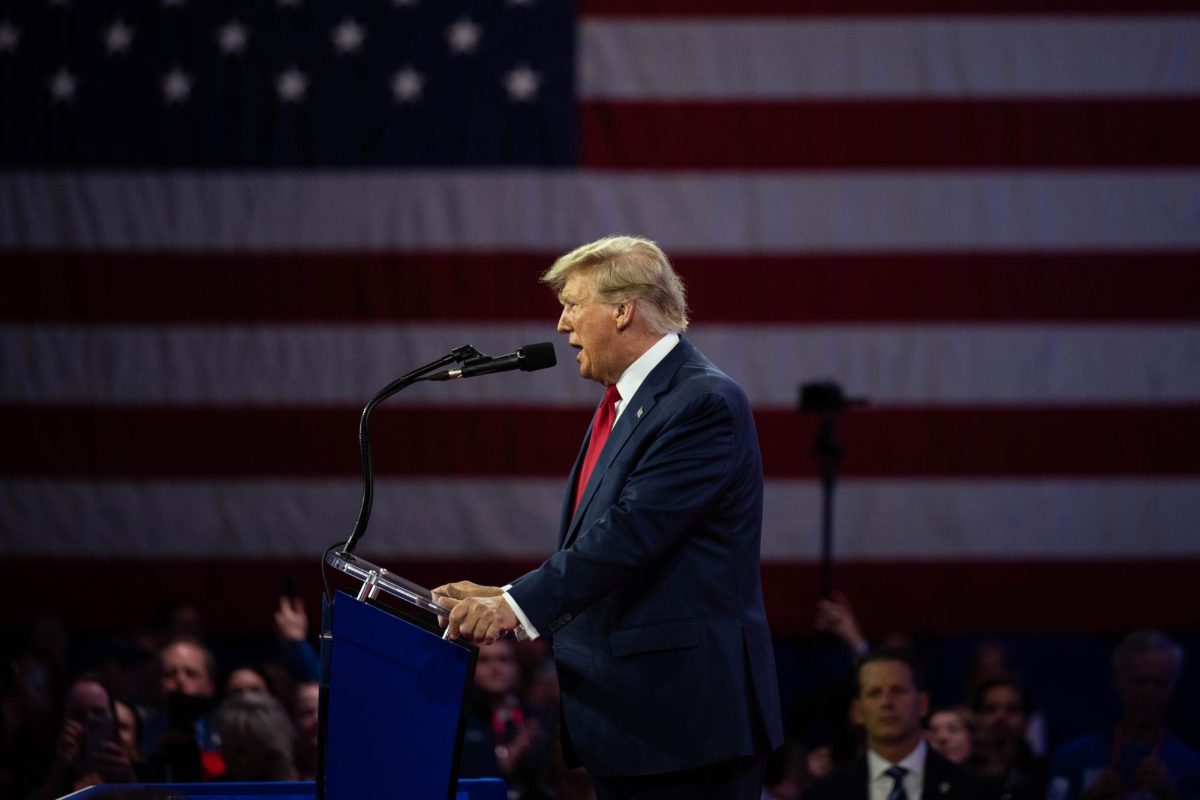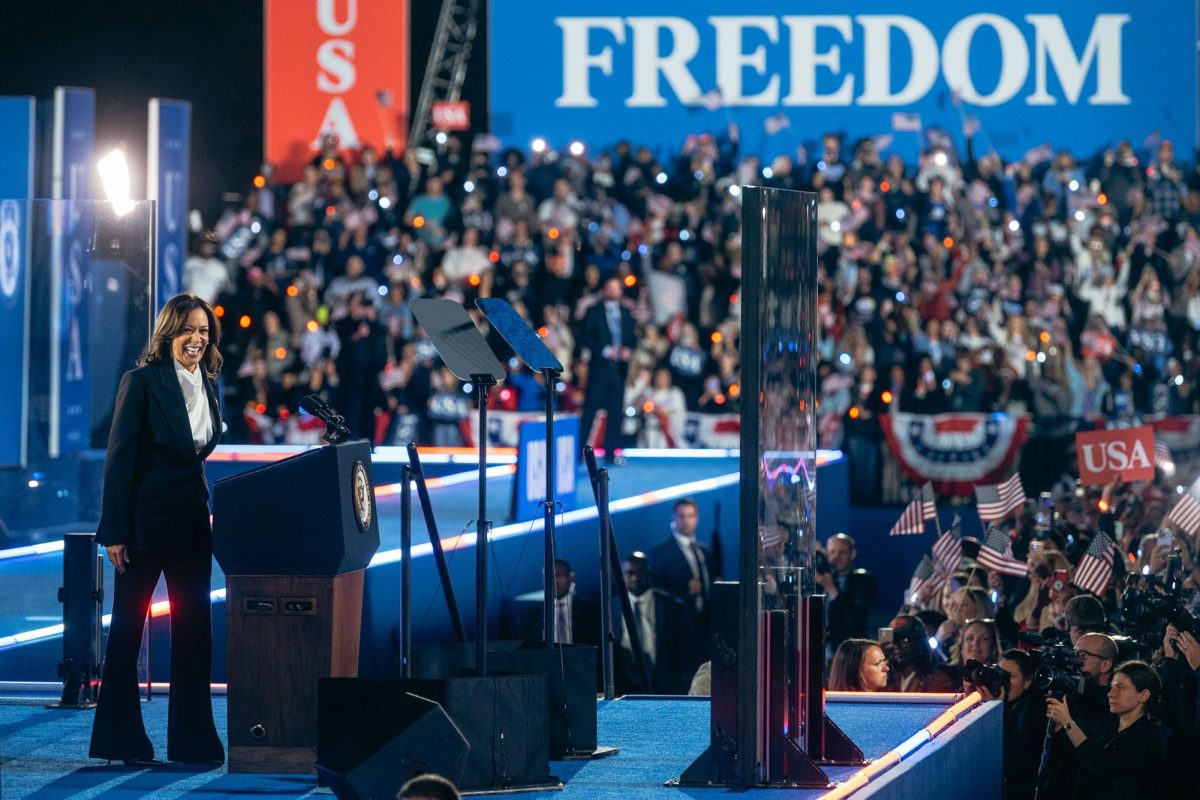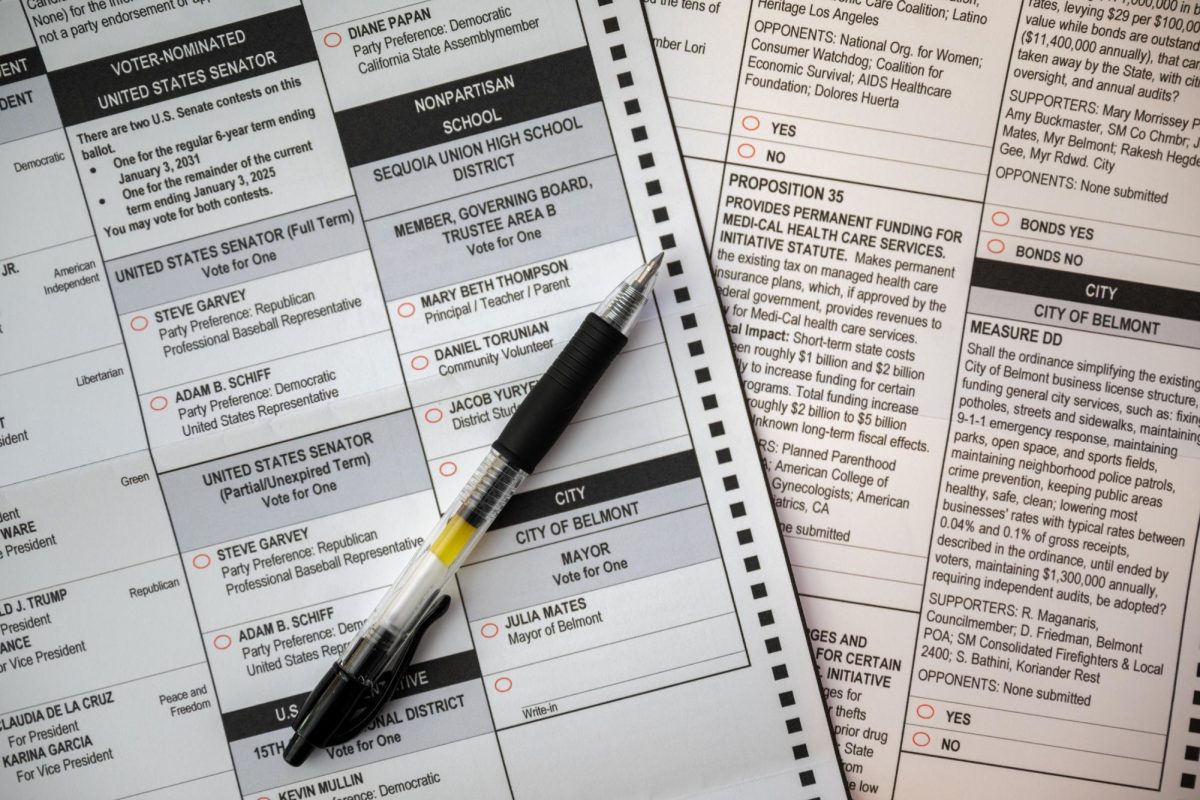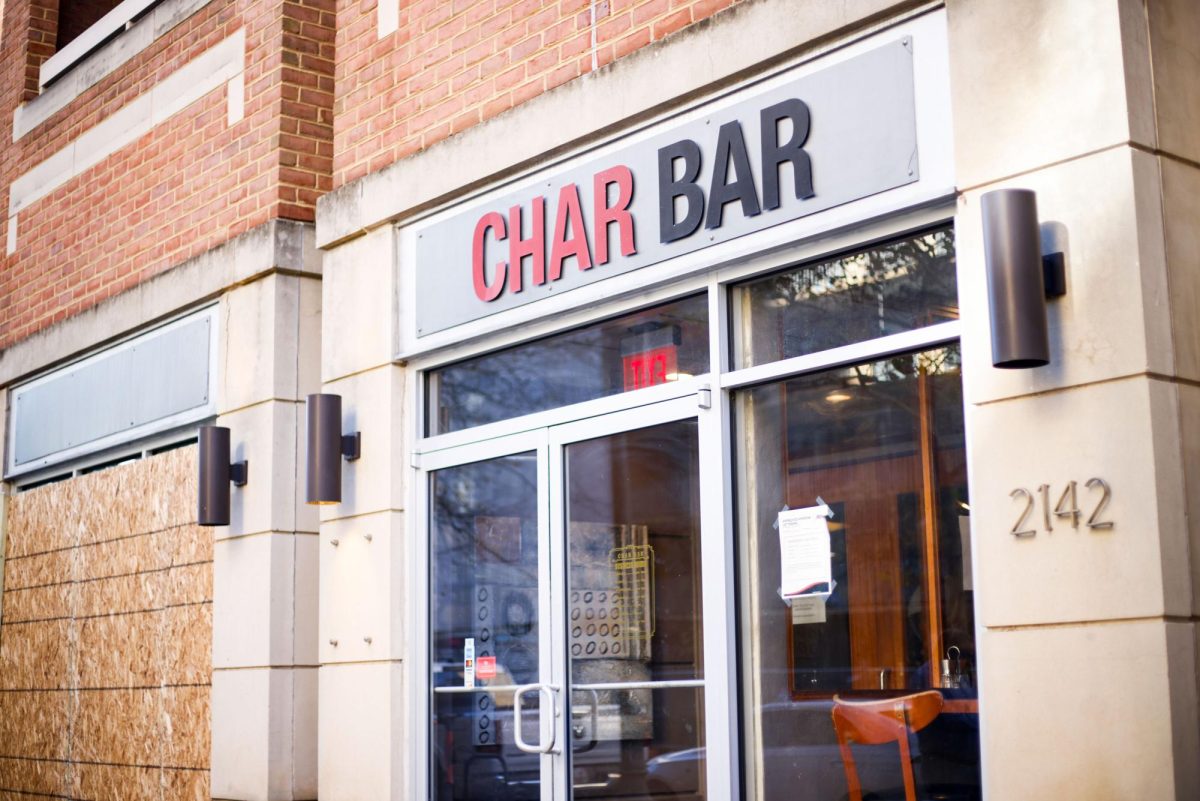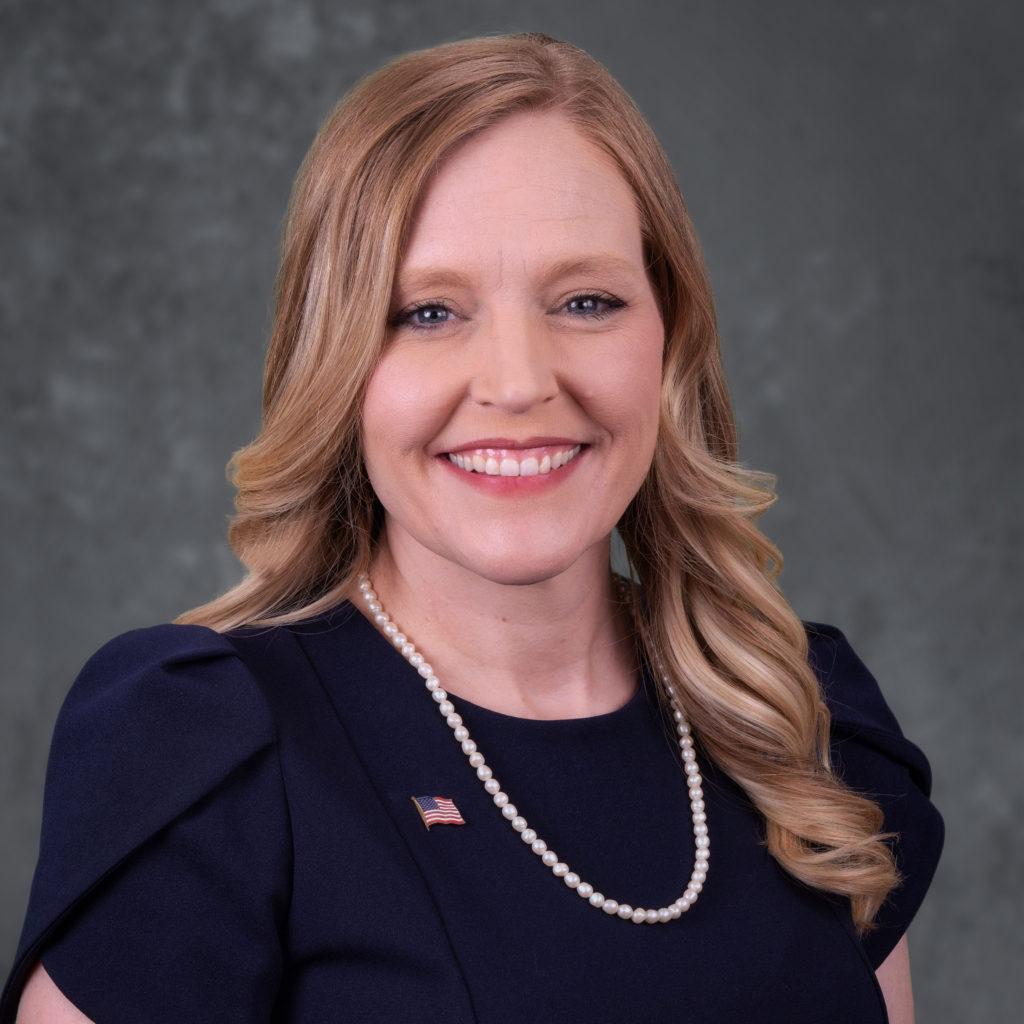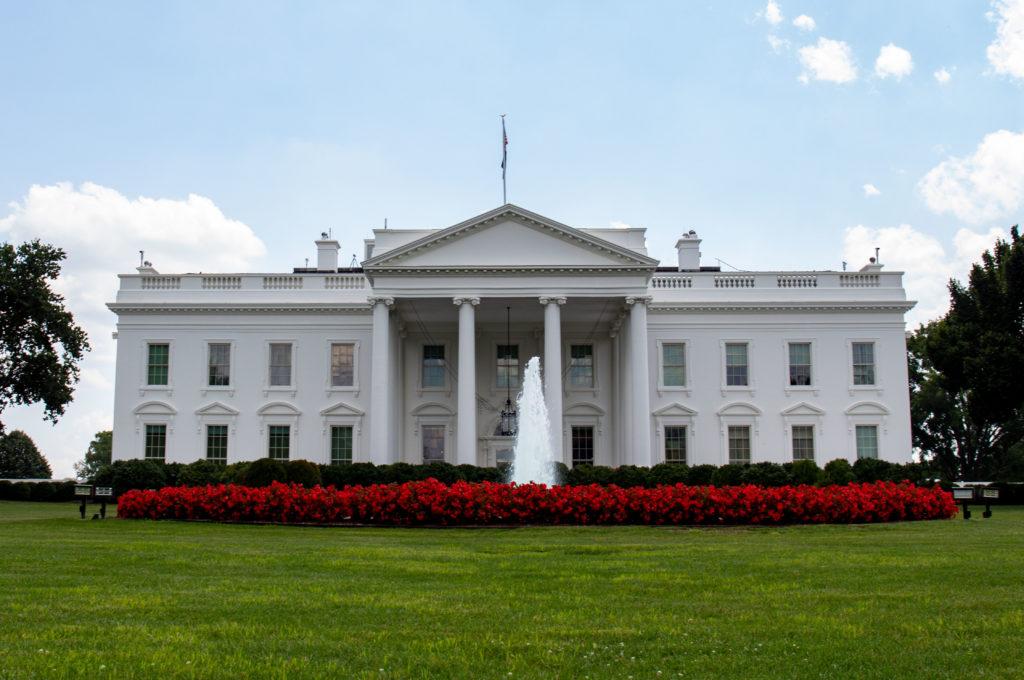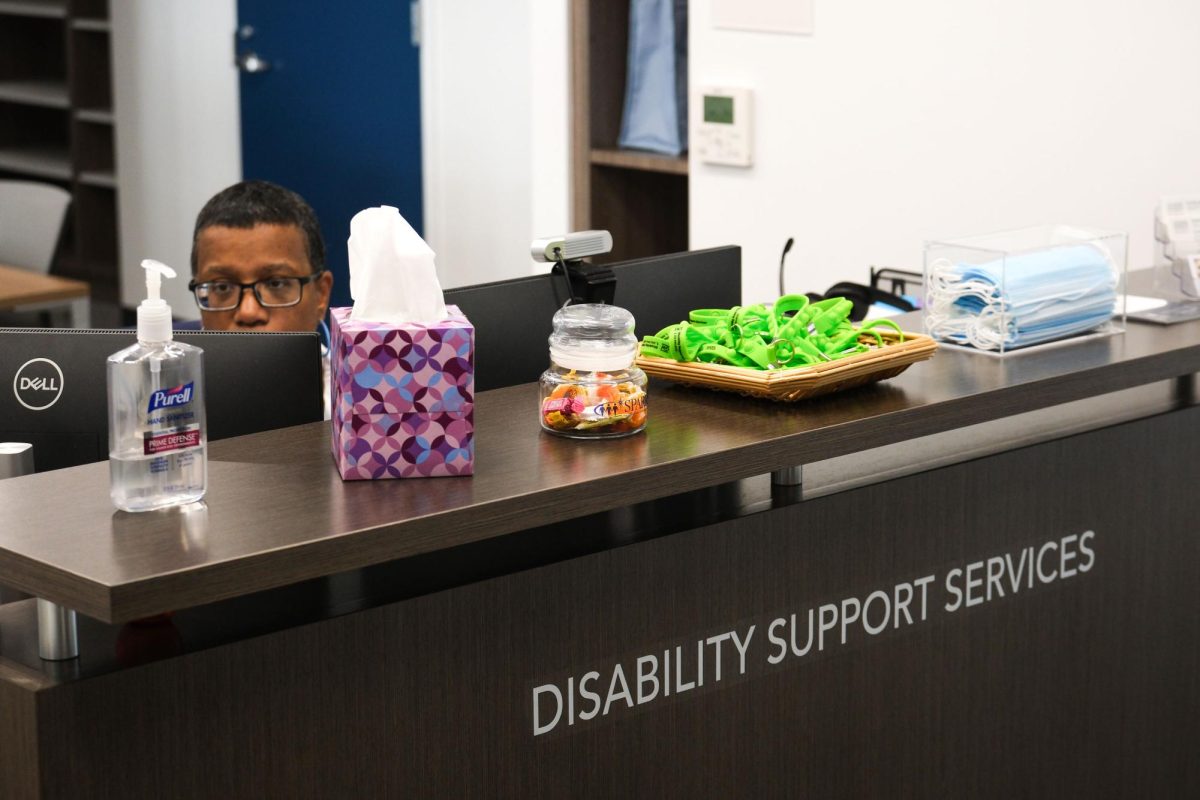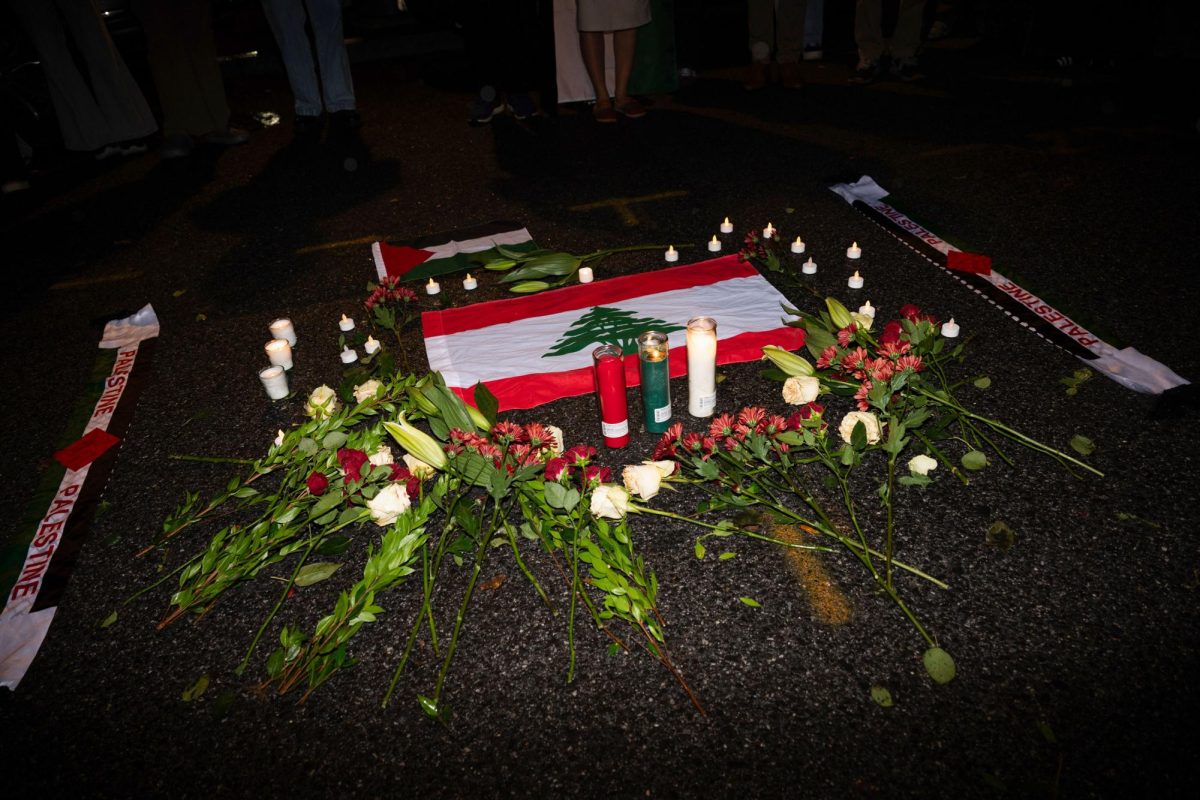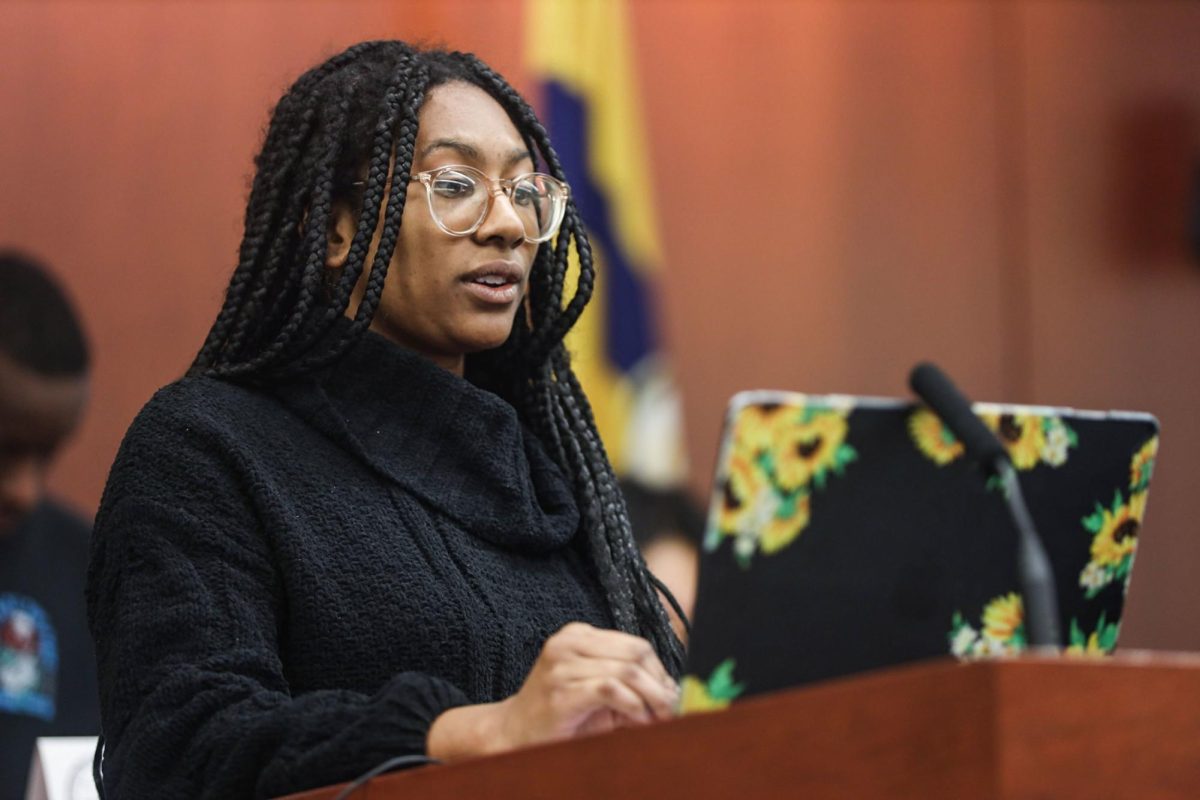D.C. and University officials are bracing for a potentially tumultuous 11 weeks between Election Day and the inauguration on Jan. 20 by heightening police presence at polling stations and limiting tap access to University buildings for anticipated protests.
This election marks the first presidential election since a mob backing former President Donald Trump breached the Capitol on Jan. 6, claiming the election results — which declared President Joe Biden as winner — were invalid. Metropolitan Police Department Chief Pamela A. Smith said at a press conference Tuesday that MPD is not aware of any current credible threats of political violence or riots, but she said that all eligible 3,300 MPD officers will be deployed “across the city” to D.C.’s city center, which borders the White House and early voting centers across the District beginning this week to ensure safe voting at polling places.
“We will not stand for any instances of voter intimidation, of disruption in this electoral process,” she said.
She said at the press conference that collaboration with branches of MPD from neighboring jurisdictions is the “backbone” of the department’s security strategy. Smith also said MPD is activating the Joint Operation Command Center, which allows MPD to coordinate with federal authorities for large-scale or emergency situations.
“We will not tolerate any violence of any kind,” Smith said. “We will not tolerate any riots. We will not tolerate the destruction of property.”
D.C. Mayor Muriel Bowser said in a press briefing on Oct. 22 that MPD officers will play a support role at polling stations across D.C. to prevent inference from protesters and oversee transportation of ballots to the D.C. Board of Election counting location.
“We may not have a declared winner on election night,” Bowser said at a press briefing on Oct. 22. “Almost nobody thinks that we’re going to have a winner declared.”
Clint Osborn, the acting director of the D.C. Homeland Security and Emergency Management Agency, said District officials are working with MPD to collect information about what security threats the departments should be prepared for and how preventative measures like road closures may impact residences’ day-to-day lives this week.
Some businesses by the White House like local Asian restaurant Pow Pow on I Street and McDonald’s on 17th Street have begun boarding up their windows ahead of potential unrest on Election Day. But Jonathan Langel, the manager of Bobby Van’s Grill at 12th and New York, which is about a 10-minute walk from the White House, said he’s waiting to hear official guidance from local officials before boarding up.
“It depends on what kind of threat assessment we’re expecting,” Langel said.
Langel said he’s “less worried” than he was in summer 2020, when looters damaged over $100,000 worth of goods at Bobby Van’s, including shattering windows, throwing a Molotov cocktail into the restaurant and stealing booze and damaging computers. He said his understanding is that there will be a heightened presence of security personnel this year, adding that city and federal officials have been in regular contact with the landlords of the downtown buildings and said they’re doing “an excellent job” keeping them informed about security measures.
He said he is expecting to receive a security assessment from D.C. officials sometime before the election, but he said he hadn’t received an update as of Saturday.
The D.C. Council passed emergency legislation on Tuesday, introduced by Ward 2 Councilmember Brooke Pinto, to restrict local demonstrators from using projected sound to target government officials’ residential homes between 7 and 9 p.m., after demonstrators used early-morning protests outside the Chinese ambassador’s home to draw attention to their disagreements with the Chinese government on land and economic issues. The legislation will be in place for 90 days after Bowser signs it, after the mayor signaled her support in a letter last week. The legislation will also bar protesters lobbing projectiles at residences as a means of intimidation.
University officials said in an email sent on Oct. 29 that they are “collaborating closely” with district, state and federal officials to keep campus safe on Election Day. The email states that University staff will monitor potential campus impacts through an Emergency Operations Center through the week of Nov. 5 and GW Police Department and security officers will “enhance” their presence on campus. Buildings will also be accessible only to GWorld holders and the parking garages on campus will be limited to GW affiliates, except for the Science and Engineering Hall and Medical Faculty Associate garages, which will be open to patients and guests.
“There is no information currently that suggests a specific threat to GW or other area campuses or institutions,” the email states. “However, as with any significant national election, we encourage all members of our community to be prepared for demonstrations and the potential for confrontations that can result among protesters, counter-protesters, and law enforcement.”
GW administrators similarly closed the Foggy Bottom campus to everyone but residential students and on-site employees during the D.C. curfew enacted after Jan. 6, 2021, which lasted from 6 p.m. on Jan. 6 to 6 a.m. on Jan. 7.
The D.C. Board of Elections added armed security officers outside its headquarters on Half Street and mail-in ballot processing center this year, according to the Washington Post. The Department of Homeland Security designated the counting and certification of electoral votes this coming year on Jan. 6, 2025 as a National Special Security Event, meaning the Secret Service will take the helm to design and implement a security plan for the event, according to a September press release.
Additionally, the National Park Service accepts protest permit applications on a first-come, first-serve basis. Protest organizers, who appear to be left-wing groups preparing to save space to either protest or celebrate results depending on the outcome, have submitted at least nine permit requests for possible election-related demonstrations between Oct. 20 and the inauguration on Jan. 20, according to the Washington Post.
In preparation for election protests, Scott Michelman, the legal director of ACLU-D.C., a local branch of the national organization that advances civil liberties and rights through public education, advocacy, organizing and litigation, sent a letter to law enforcement agencies and district leaders in September with the goal to “get ahead” of law enforcement getting “trigger happy.” Michelman wrote in the hopes of avoiding guilt-by-association policing, when peaceful protesters get lumped in by police with people who are engaging in civil disobedience, during First Amendment activity.
The letter states law enforcement should not use excessive force against protesters — pointing to the clearing of demonstrators protesting the death of George Floyd in Lafayette Square in 2020 and the mass arrest of demonstrators protesting Trump’s inauguration in 2017 — instead only enacting force to curb violence, which will prepare law enforcement to respond appropriately to election protests or violence that crops up in D.C., Michelman said.
“Each of these resulted in lawsuits,” Michelman wrote in the September letter. “I hope you’ll take this opportunity to ensure that your plans regarding any upcoming demonstrations in our Nation’s Capital are firmly grounded in respect for the freedom of speech — one of the fundamental rights on which our democracy rests.”
Michelman said in an interview that Capitol Police was the only agency to respond to his letter to help plan preventative action and safe protests in the District with ACLU, asking for guidance on how to address concerns raised in the letter. Michelman said ACLU is preparing a briefing and training for senior staff within the Capitol Police about First Amendment and D.C. principles referenced in the letter.
“We do regularly get in touch with law enforcement or other government officials when we see the possibility for violations of people’s civil rights and civil liberties, and see an opportunity to head those off,” Michelman said.
Jenna Lee contributed reporting.


